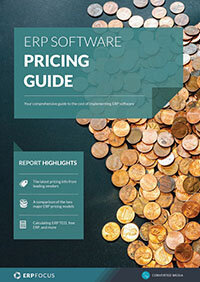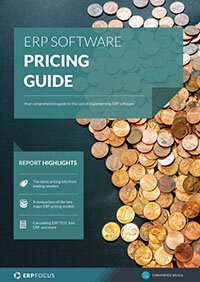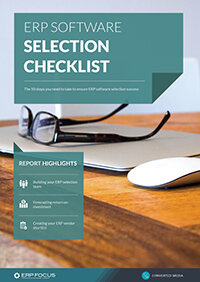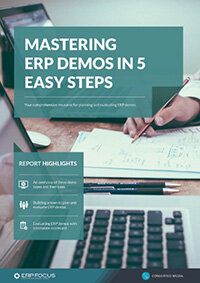Five things that a good construction ERP must do
While resources-based platforms typically encompass common characteristics, when it comes to construction ERP specifically, certain discrete operational requirements must apply as well. Because large-scale construction development usually involves itself with not only transaction-based processing, but also the projection of detailed cost estimations prior to the efficient execution and delivery of the bid-contract- sale chain, at a systems level, this focus tends drives a number of different and highly-granular business needs.
Consequently, we thought we’d take a look at what construction ERP platforms must offer in order to provide create maximum business value.
1. Job cost/estimation
This element is the core of virtually all sophisticated construction ERP platforms. Construction projects, whether related to interior, external, the renovation/reclamation of land or facilities; or other developmental values all begin with the production of some sort of overall estimation relating to a project’s total cost.
Developments are largely, if not always, driven by a primary contract. That in turn represents a final legal cost/revenue baseline agreement between developer and client. As a result certain necessary elements must be estimated in order to establish a desired business outcome including:
- Time and materials tasking
- Overall cost estimations based on user, or traditionally applied cost category tasking
- Current and archival budget comparisons and storage tasking
- Complete audit tracking of all budgetary changes
- Job based category management
- Actual versus estimated cost comparisons
- Variable cost calculations ranging from gross/net revenue, to percentage of completion
- Applied calculations associated with cost-of-sales and earned revenue estimations
2. Flexible accounting
Aside from typical GL, AR, AP, and Inventory functions, construction ERP also requires a more granular approach to financial management. Most sophisticated construction systems include the following:
- Contracts management
- Contractor indexing
- Materials management
- Equipment management
- Time and billing
- Taxes and state/federal policy management
- Vendor indexing
- Purchase and change order management
- Operational inventory management
3. Granular payroll capabilities
In this case, standard payroll processing is extended further, by orienting toward hours-expended versus estimated-cost operations, along with deeply-defined reporting. Specific functions here include:
- Real-time payroll processing
- Labor costing
- Summary labor cost analysis
- Unit cost reports
- Unit productivity reports
- Direct labor cost control reports
- Tax
- Insurance
- EEO reporting
- FTE histories and background investigations
- Union reporting
- State/Federal reporting
- Multi-project capable
- Multi-project check capable
- On-demand project cost/revenue consolidations
4. Materials and equipment handling
In this case, construction ERP systems should also manage and account for equipment ranging from hand-tool processing, to the identification and operation of hosts of heavy-equipment assets. For example:
- Specialized engine-powered hand tools
- Bull Dozers
- Earth movers
- Dump trucks
- Water trucks
- Road graders
- Asphalt trucks
- Small, mid-sized and large cranes
- Bobtail and stake trucks
- Busses
- Trailers
5. Comprehensive financial reporting
Because construction ERP is primarily driven by project, rather than traditional business tenets, sophisticated systems typically offer enhanced financial reporting including the following elements:
- Maximized resource utilization analysis
- Multi-company
- Multi-location
- Profit & Loss management by unit, location, product mix or project manager
- Granular asset tracking
- Liability and equity management by project/corporate entity
- Balance sheet management by project/corporate entity
As one might assume, then, construction ERP platforms require deeper views of operational necessities throughout, and consequently, offer much more robust functionalities when compared with more traditional business frameworks.
Free white paper

ERP Software Pricing Guide
Get the latest pricing information on over 80 popular ERP systems, and learn how to budget for your ERP project in our free guide

Featured white papers
-

ERP Software Pricing Guide
Get the latest pricing information on over 80 popular ERP systems, and learn how to budget for your ERP project in our free guide
Download -

60-Step ERP Selection Checklist
Get the comprehensive checklist for your ERP selection project
Download -

ERP Demo Guide & Scorecard
Master your ERP demo with 5 easy steps using our free guide (includes demo scorecard)
Download
Related articles
-

The best ERP systems for process manufacturing
Consider these ERP systems when selecting your next process manufacturing ERP
-

Secret KPI: Why Your ERP Implementation Team Matters More Than Software
Learn how Godlan ensures successful ERP implementation for manufacturers with proven strategies &...
-

5 ERP pricing definitions you need to understand
Have you mastered the ERP pricing lexicon yet? Getting to grips with these five definitions is a ...

